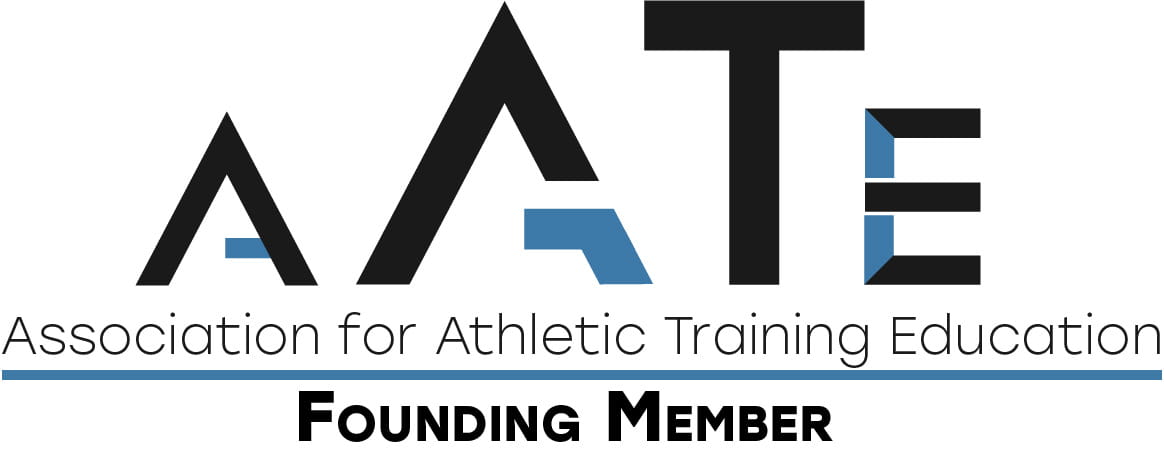The Division of Athletic Training at Ohio State's School of Health and Rehabilitation Sciences has transitioned the Bachelor of Science in Athletic Training (BSAT) to a Master of Athletic Training (MAT) degree to prepare the next generation of athletic trainers in accordance with new national guideline requirements. The first MAT cohort began in Summer 2023.
Ohio State Athletic Training is a flagship program with a well-established international reputation for excellence. This is a program where everyone knows you by name and every instructor is invested in your personal and professional success. Our graduates' board exam performance at the BSAT level consistently places us in the top tier among programs nationally and there are few programs that can offer the variety and quality of opportunities that you will find here.
Admitted students will be expected to exemplify program pillars of oral and written communication, problem solving, and critical thinking. Integrated within the curriculum are the professional behaviors from the National Athletic Trainer's Association professional values, which promote clinicians who act with Integrity and are Caring, Compassionate, Competent, Respectful, and Accountable.
Join our legacy of excellence and leadership in the field as part of the Ohio State Buckeye Athletic Training family.
Program Accreditation Information and Outcomes
Ohio State University's Master of Athletic Training is fully accredited by the Commission on Accreditation of Athletic Training Education (CAATE), 2001 K Street NW, 3rd Floor North, Washington, DC 20006, phone: 512-733-9700. Our substantive change Level of Degree Change request was approved July of 2023 for a 5-year accreditation period. Our next comprehensive accreditation review is slated for 2028-29. We are no longer accepting students into the CAATE accredited Bachelor of Science in athletic training program. The last undergraduate cohort is expected to graduate in May 2025.
Ohio State's Athletic Training program information and outcomes are available on the CAATE website.
Mission
Our mission is to provide exceptional entry-level graduate education that develops professional Athletic Trainers who can deliver outstanding patient centered care; develop as independent practitioners engaging in evidence-based decision making; and collaborate with various healthcare professionals to improve patient outcomes.
Vision
Our vision is to work as a team to prepare future health care professionals who are committed to caring for all and shaping the field of Athletic Training through research, innovation, leadership, and service.
Values
Our values serve as a compass for our actions and describe how we conduct ourselves.
- LEADERSHIP – we work to create, share and realize a vision for the future
- INNOVATION – we look to create a better way
- GRATITUDE – we are appreciative of our opportunities to positively impact others
- HUMILITY – we accept the responsibilities of helping others free from pride or arrogance
- TRADITION – we honor our proud heritage and carry-on the legacy of those who went before us
- To graduate students who are ready for independent practice and exhibit the program pillars of strong verbal and written communication skill, and problem solving and critical thinking ability. Students will demonstrate evidence of entry level knowledge and skill through:
- Successful Completion of Progressive Sequential Clinical Education (PSCE)
- Successful Progression Through the Integrated curriculum (IC)
- Exceed national average for first time BOC exam performance
- To graduate students who will become leaders in Athletic Training, the Medical Community, and the larger community. Students will demonstrate evidence of professional and community service through involvement in:
- Volunteering in local community events and programs
- Volunteering in medical community events
- Participating in university community events
- Participating in the AT community by attending conferences or volunteering for events and committees
- To graduate students who will be future innovators. Students will demonstrate evidence of clinical practice knowledge and leadership through:
- Successful completion of a capstone project: There are two master's degree program plans: thesis or non-thesis, both marking the culmination of the student’s learning and representing a substantial effort by the student.

